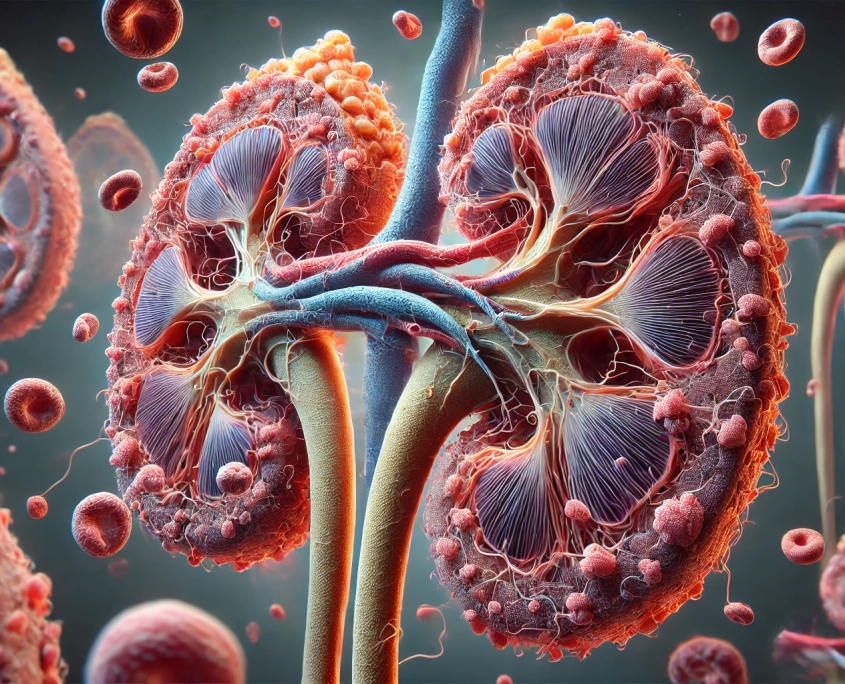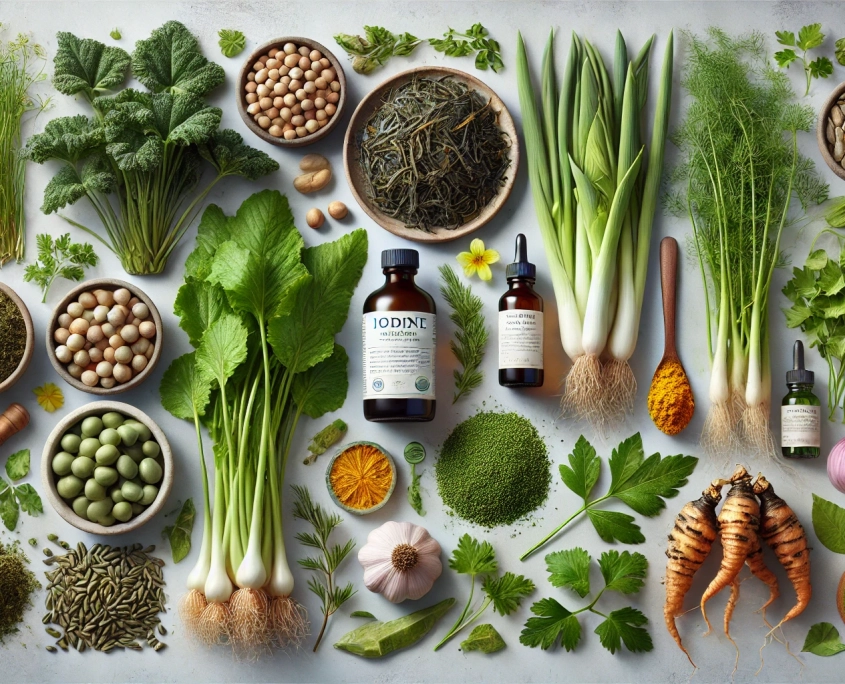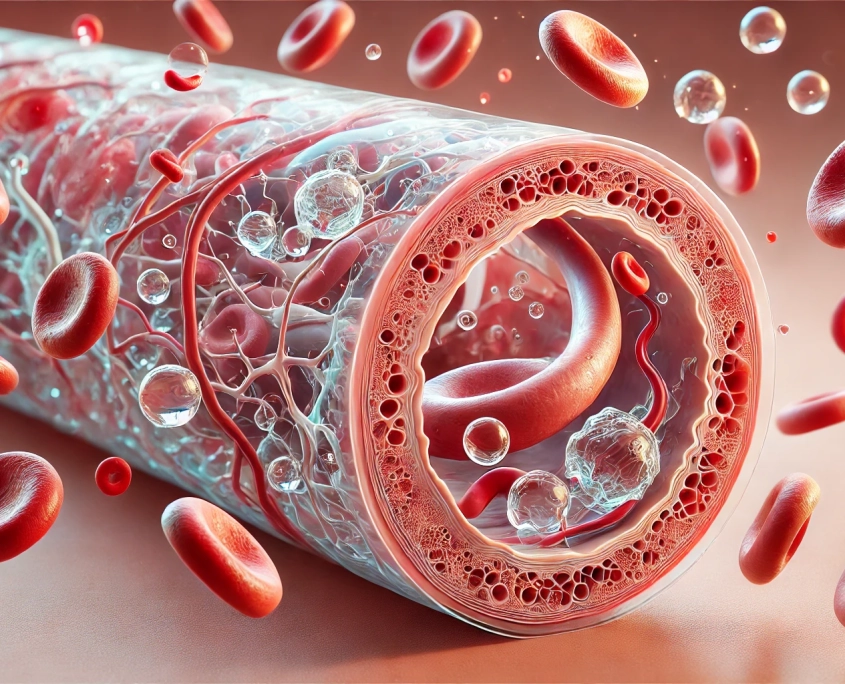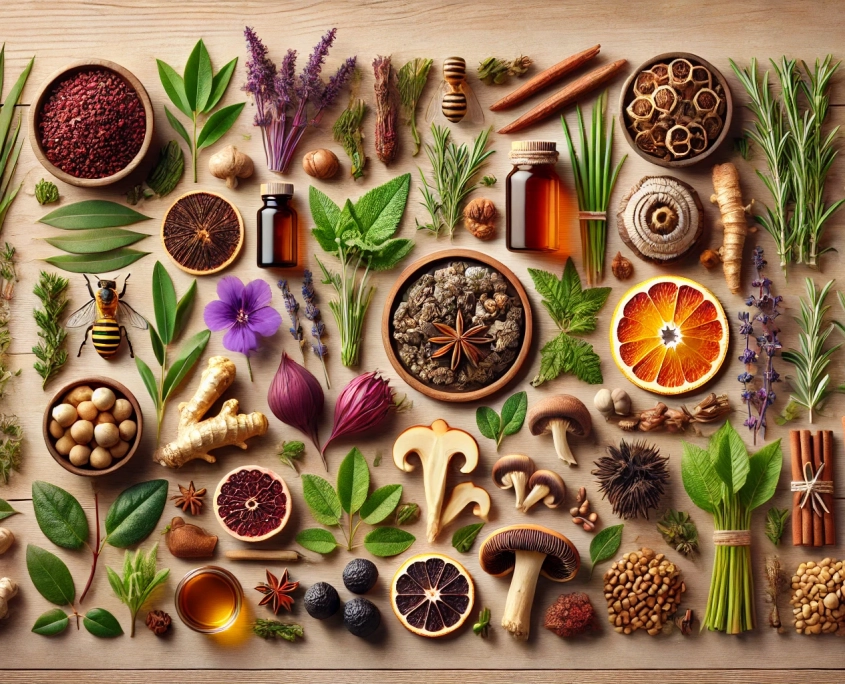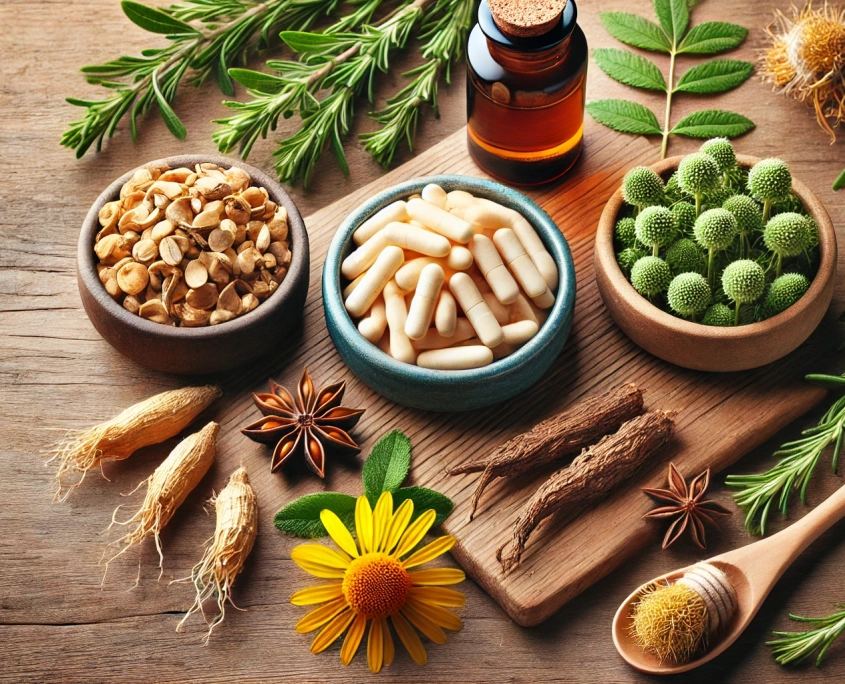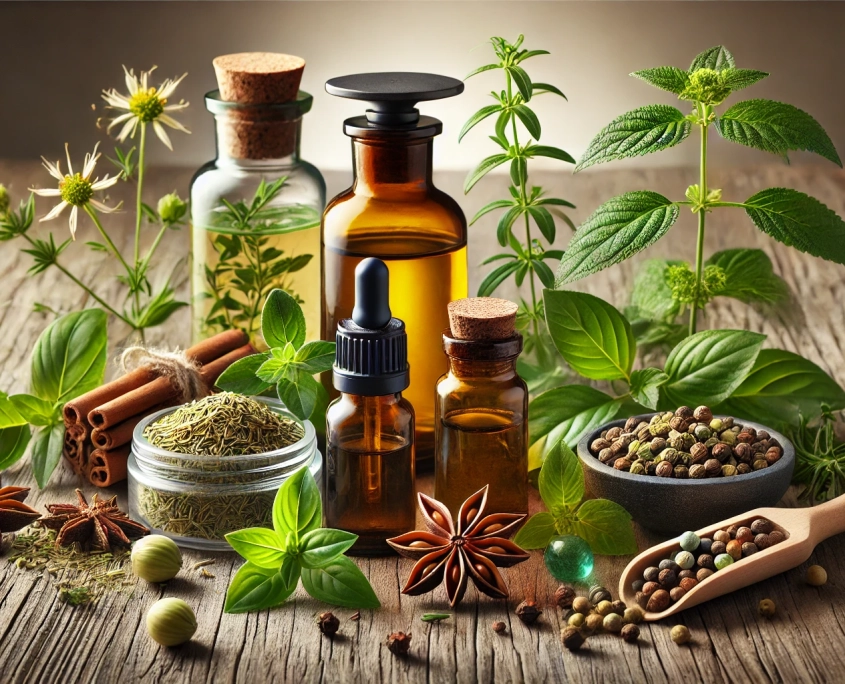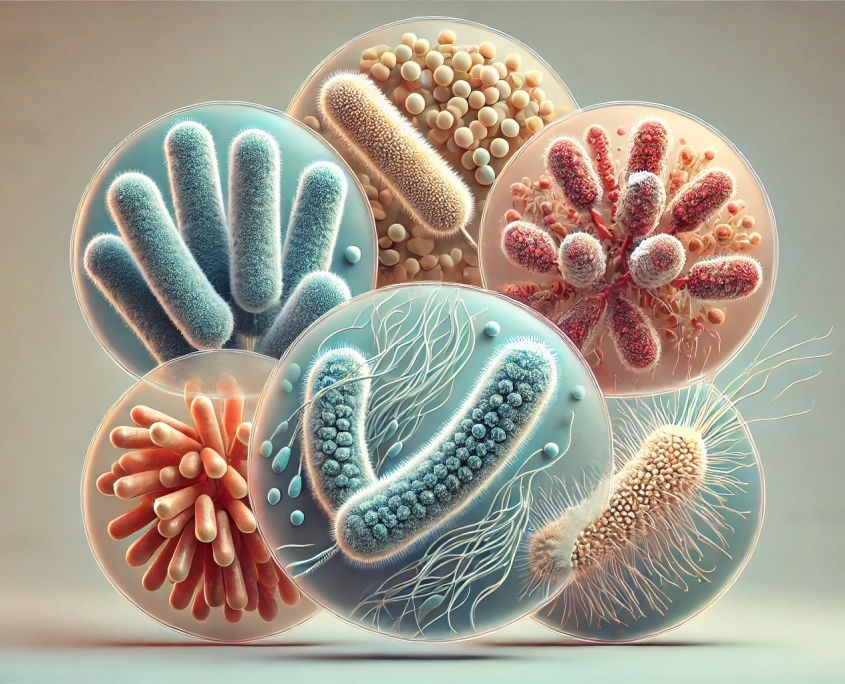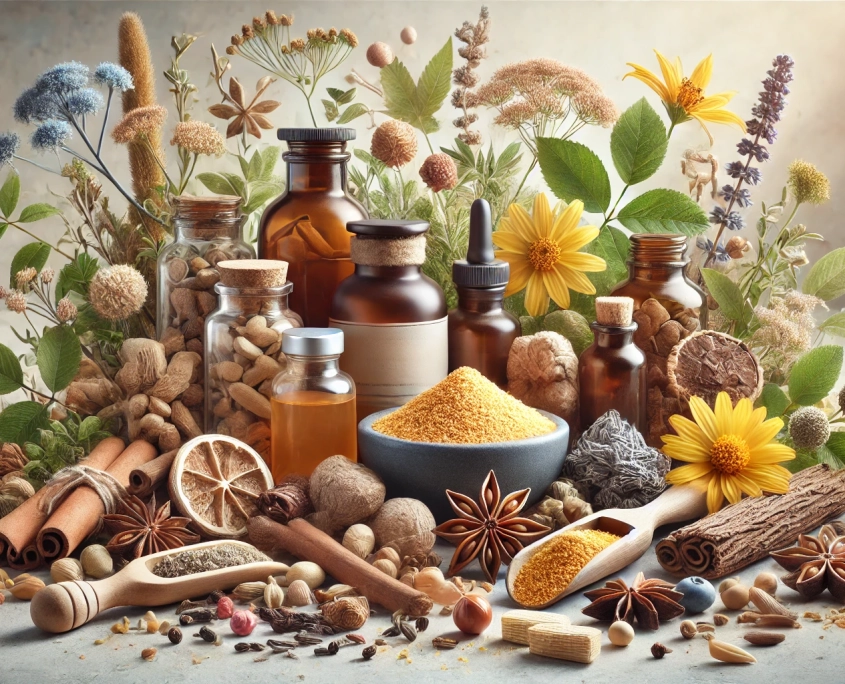
Evaluating the Multifaceted Approach of a Novel Supplement in Mental Health Management
Abstract
AnxiaEase™ is a dietary supplement formulated to support stress management and mood stabilization through a combination of herbal extracts, vitamins, and minerals.
The primary components include Holy Basil Extract, Ashwagandha, Phosphatidylserine, Lemon Balm Extract, English Lavender Extract, Passionflower Extract, Cerebiome® probiotics, Pyridoxal-5-Phosphate (active form of B-6), and Magnesium acetyl
Clinical studies demonstrate significant improvements in stress-related symptoms, depressive scores, and overall psychological well-being, validating AnxiaEase™ as a promising adjunct in mental health care.
Introduction
AnxiaEase™ is designed to address the increasing prevalence of stress and mood disorders by leveraging a synergistic blend of botanicals, probiotics, and essential nutrients. The formulation aims to modulate stress responses, support neurochemical balance, and enhance gut-brain axis communication.
Mechanisms of Action
Healthy Stress Response
Ingredients: Holy Basil Extract, Ashwagandha, Phosphatidylserine
Mechanisms:
- Holy Basil Extract and Ashwagandha are adaptogens that normalize cortisol levels, enhancing resistance to stress and anxiety. They support neuro-cellular health by stabilizing norepinephrine and epinephrine levels, which are crucial for mood stabilization.
- Phosphatidylserine supports cognitive function and reduces the physiological impact of stress by modulating the hypothalamic-pituitary-adrenal (HPA) axis.
Calming Complex
Ingredients: Lemon Balm Extract, English Lavender Extract, Passionflower Extract
Mechanisms:
- Lemon Balm Extract promotes relaxation and alleviates anxiety symptoms by modulating gamma-aminobutyric acid (GABA) activity and reducing cytokine-induced inflammation.
- English Lavender Extract exhibits neuroprotective and antioxidant properties, enhancing mood and reducing depressive symptoms.
- Passionflower Extract supports a healthy level of GABA production, contributing to its calming effects.
Gut-Brain Soother
Ingredients: Cerebiome® (Bifidobacterium longum Rosell®-175, Lactobacillus helveticus Rosell®-52)
Mechanisms:
- Utilizes psychobiotics that enhance bidirectional gut-brain communication, positively influencing mood and anxiety levels. Clinical research shows significant health improvements within 30 days of administration.
A psychobiotic is a type of probiotic that, when ingested in adequate amounts, provides mental health benefits by positively influencing the gut-brain axis. These benefits can include reduced anxiety, improved mood, and enhanced cognitive function. Psychobiotics achieve these effects through various mechanisms, such as modulating the immune system, producing neuroactive substances, and improving gut barrier function, which collectively impact brain function and mental well-being.
B-6 (as PSP)
Ingredients: Pyridoxal-5-Phosphate
Mechanisms:
- Essential for the synthesis of neurotransmitters like serotonin, which play a vital role in mood regulation. Adequate B-6 levels are associated with improved mental health.
Magnesium (acetyl taurate)
Ingredients: Magnesium acetyl taurate
Mechanisms:
- Exhibits calming, neuroprotective, and anti-inflammatory effects on the brain. It enhances GABA and cortisol regulation and increases brain magnesium levels, surpassing other forms of magnesium in efficacy and gastrointestinal tolerance.
The Gut-Brain Axis
The gut-brain axis is the bidirectional communication network that links the gastrointestinal tract (gut) and the central nervous system (brain). This complex system involves multiple pathways, including:
- Neural Pathways: The vagus nerve is a primary component, transmitting signals between the gut and brain. The enteric nervous system (ENS), often referred to as the “second brain,” operates semi-autonomously to manage digestion and interact with the central nervous system.
- Hormonal Pathways: The gut produces hormones such as ghrelin and leptin, which can influence appetite, mood, and cognitive functions. These hormones travel through the bloodstream to the brain, where they can affect neurotransmitter activity.
- Immune Pathways: The gut-associated lymphoid tissue (GALT) plays a crucial role in immune function. Cytokines produced in the gut can enter the bloodstream and impact brain function, potentially affecting mood and behavior.
- Microbial Pathways: The gut microbiota, comprising trillions of microorganisms, produce metabolites such as short-chain fatty acids (SCFAs) that can influence brain function. Dysbiosis, an imbalance in the gut microbiota, has been linked to various mental health disorders, including anxiety and depression.
These pathways collectively highlight how the gut and brain continuously influence each other. For instance, stress can alter gut motility and microbial composition, while gut health can impact stress responses and cognitive function. Understanding the gut-brain axis is crucial for developing treatments for gastrointestinal and neurological disorders, as well as for optimizing overall health and well-being.
Detailed Analysis of Cerebiome® Strains
Bifidobacterium longum Rosell®-175
Bifidobacterium longum Rosell®-175 is a well-documented probiotic strain known for its beneficial effects on the gastrointestinal tract and mental health. This strain is characterized by its ability to:
- Enhance Intestinal Barrier Function: B. longum Rosell®-175 helps strengthen the gut barrier, preventing the translocation of harmful bacteria and toxins into the bloodstream, which can adversely affect brain function.
- Produce Short-Chain Fatty Acids (SCFAs): These metabolites, such as acetate, propionate, and butyrate, have anti-inflammatory properties and support the gut lining’s integrity. SCFAs also have neuroactive properties, influencing brain function and behavior.
- Modulate the Immune System: B. longum Rosell®-175 helps regulate immune responses by modulating cytokine production, reducing inflammation that could impact the brain and mood.
- Impact Neurotransmitter Levels: This strain can influence the production of neurotransmitters like serotonin and GABA, which play critical roles in mood regulation and anxiety reduction.
Lactobacillus helveticus Rosell®-52
Lactobacillus helveticus Rosell®-52 is another potent probiotic strain with significant benefits for gut and brain health. Key attributes include:
- Anti-Anxiety and Anti-Depressive Effects: L. helveticus Rosell®-52 has been shown in clinical studies to reduce symptoms of anxiety and depression, likely through its impact on the gut-brain axis.
- Production of Bioactive Peptides: These peptides can have anxiolytic and mood-enhancing effects by modulating brain function.
- Regulation of Stress Responses: This strain can influence the hypothalamic-pituitary-adrenal (HPA) axis, reducing cortisol levels and enhancing the body’s ability to cope with stress.
- Support for Gut Health: L. helveticus Rosell®-52 contributes to a balanced gut microbiota, improving digestion and nutrient absorption, which in turn supports overall mental well-being.
Clinical Evidence
Depression and Psychological Stress
Study 1: Cerebiome® and Depression
- A study with 110 patients suffering from mild to moderate depression demonstrated significant reductions in Beck Inventory Depression (BDI) scores after 8 weeks of Cerebiome® supplementation, indicating improved mood and reduced depressive symptoms.
Study 2: Cerebiome® and Psychological Stress
- A clinical trial involving 55 participants showed that daily doses of Cerebiome® significantly alleviated psychological distress, with marked improvements in global severity index, somatization, depression, and anger-hostility within 30 days.
Conclusion
AnxiaEase™ offers a comprehensive approach to managing stress and mood disorders through a blend of adaptogenic herbs, neuro-supportive vitamins, and gut-brain axis enhancing probiotics.
Clinical evidence supports the efficacy of its ingredients in reducing stress, anxiety, and depressive symptoms, making it a valuable supplement in mental health care.
References
Mental Health References
- National Alliance on Mental Health. https://nami.org/mhstats
- Lebrun-Harris et al. Five-Year Trends in US Children’s Health and Well-being. 2016-2020. JAMA Pediatr. 2016
- Kaiser Family Foundation. https://www.kff.org/coronavirus-covid-19/issue-brief/the-implications-of-covid-19-for-mental-health-and-substance-use
- Siegel, George J., et al. Biochemical Aspects of Anxiety. (1999)
- Petty F. GABA and mood disorders: a brief review and hypothesis. J Affect Disord. 1995 Aug; 18-34(4):275-81
- Brambilla P et al. GABAergic dysfunction in mood disorders. Mol Psychiatry 2003 Aug;8(8):721-37, 715.
- Kaur S., Singh, R. (2017). Role of Different Neurotransmitters in Anxiety: A Systematic Review. International Journal of Pharmaceutical Sciences and Research. ISSN (Online): 0975-8232
Ingredient References
Ashwagandha Extract: Withania Somnifera
- Auddy B. et al. A standardized Withania somnifera extract reduces stress related parameters in chronically stressed humans – a double-blind, randomized, placebo-controlled study. JANA. 2008. Vol II, No. I, pp. 50-56.
- Chandrasekhar K et al. A prospective, randomized double-blind, placebo-controlled study of safety and efficacy of a high-concentration full-spectrum extract of Ashwagandha root in reducing stress and anxiety in adults. Indian journal of psychological medicine. 2012. 34(3), 255
- Lopresti AL, Smith SJ, Malvi H, Kodgule R. An investigation into the stress-relieving and pharmacological actions of an ashwagandha (Withania somnifera) extract: A randomized, double-blind, placebo-controlled study. Medicine (Baltimore). 2019;98(37)
. - Raghunandan V, et al. Withania somnifera Root Extract Enhances Telomerase Activity in the Human HeLa Cell Line .Advances in Bioscience and Biotechnology. 2016. 7(04).
Phosphatidylserine
- Baumester J. et al. Influence of phosphatidylserine on cognitive performance and cortical activity after induced stress. Nutr Neuroscience. 2008 Jun;11(3):103-10.
- Hellhammer J, Fries E, Buss C, Engert V, Tuch A, Rutenberg D. Effects of soy lecithin phosphatidic acid and phosphatidylserine complex (PAS) on the endocrine and psychological responses to mental stress. Stress. 2004 Jun;7(2):119-26.
- Hellhammer J, Voigt D, Franz N, Freitas U, Rutenberg D. A soy-based phosphatidylserine/phosphatidic acid complex (PAS) normalizes the pituitary–adrenal axis in chronically stressed male subjects: a randomized, placebo-controlled study. Lipids Health Dis. 2014;13:121. Published 2014 Jul 31.
- Moré M, Freitas U, Rutenberg D. Positive effects of soy lecithin-derived phosphatidylserine plus phosphatidic acid on memory, cognition, daily functioning, and mood in elderly patients with Alzheimer’s disease and dementia. Adv Ther. 2014;31(12):1247-1262.
Holy Basil: Ocimum sanctum
- Sampath S, Mahapatra SC, Padhi MM, Sharma R, Talwar A. Holy basil (Ocimum sanctum Linn.) leaf extract enhances specific cognitive parameters in healthy adult volunteers: A placebo controlled study. Indian J Physiol Pharmacol. 2015 Jan-Mar;59(1):69-77. PMID: 26571987.
- Chatterjee M, Verma P, Maayra R, Pall G. Evaluation of ethanol leaf extract of Ocimum sanctum in experimental models of anxiety and depression. Pharm Biol. 2011 May;49(5):477-83.
- Bhattacharyya D, Sur TK, Jana U, Debnath PK. Controlled programmed trial of Ocimum sanctum leaf on generalized anxiety disorders. Nepal Med Coll J. 2008 Sep;10(3):176-9. PMID: 19253862.
- Jamshidi N, Cohen MM. The Clinical Efficacy and Safety of Tulsi in Humans: A Systematic Review of the Literature. Evid Based Complement Alternat Med. 2017;2017:9217567.
Lemon Balm: Melissa Officinalis
- Haybar H et al. The effects of Melissa officinalis supplementation on depression, anxiety, stress, and sleep disorder in patients with chronic stable angina. Clin Nutr ESPEN. 2018 Aug;26:47-52.
- Cases J et al. Pilot trial of Melissa officinalis L. leaf extract in the treatment of volunteers suffering from mild-to-moderate anxiety disorders and sleep disturbances. Med J Nutrition Metab. 2011;4(3):211-218.
- Ranjbar M et al. Effects of Herbal combination (Melissa officinalis L. and Nepeta menthoides Boiss. & Buhse) on insomnia severity, anxiety and depression in insomniacs: Randomized placebo controlled trial. Integr Med Res. 2018;7(4):328-332.
Magnesium
- N. Uysal et al. Timeline (Bioavailability) of Magnesium Compounds in Hours: Which Magnesium Compound Works Best? Biol Trace Elem Res 187, 128-136 (2019).
Lavender: Lavandula officinalis
- Kasper S, Müller WE, Volz HP, Möller HJ, Koch E, Dienel A. Silexan in anxiety disorders: Clinical data and pharmacological background. World J Biol Psychiatry. 2018 Sep;19(6):412-420.
- Woelk H, Schlafke S. A multi-center, double-blind, randomised study of the Lavender oil preparation Silexan in comparison to Lorazepam for generalized anxiety disorder. Phytomedicine. 2010 Feb; 17(2):94-9.
Probiotics
- Zhang X et al. Effects of Fermented Milk Containing Lacticaseibacillus paracasei Strain Shirota on Constipation in Patients with Depression: A Randomized, Double-Blind, Placebo-Controlled Trial. Nutrients. 2021 Jun 29;13(7):2238.
- Steenbergen L. et al. A randomized controlled trial to test the effect of multispecies probiotics on cognitive reactivity to sad mood. Brain, Behavior and Immunity. 2015. 258-264.
- Morkl et al. Probiotics and the Microbiota-Gut-Brain Axis: Focus on Psychiatry. Current Nutrition Reports (2020) 9:171-182.
- Pinto-Sanchez MI et al. Probiotic Bifidobacterium longum NCC3001 Reduces Depression Scores and Alters Brain Activity: A Pilot Study in Patients With Irritable Bowel Syndrome. Gastroenterology. 2017 Aug;153(2):448-459.
- A. Kazemi et al, Effect of probiotic and prebiotic vs placebo on psychological outcomes in patients with major depressive disorder: A randomized clinical trial. Clin Nutr. 2019 Apr;38(2):522-528
- M. Messaoudi et al. Beneficial psychological effects of a probiotic formulation (Lactobacillus helveticus ROOS2 and Bifidobacterium longum RO175) in healthy human volunteers. Gut Microbes Jul-Aug 2011;2(4):256-61.
Passionflower: Passiflora incarnata
- Akhondzadeh S et al. Passionflower in the treatment of generalized anxiety: a pilot double-blind randomized controlled trial with oxazepam. J Clin Pharm Ther. 2001 Oct;26\5):363-7.
- Janda K etal, Passiflora incarnata in Neuropsychiatric Disorders-A Systematic Review. Nutrients. 2020;12(12):3894.
- da Fonseca LR et al. Herbal Medicinal Products from Passiflora for Anxiety: An Unexploited Potential. Scientific World Journal. 2020.

